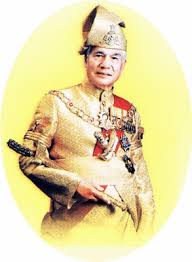
by N. H. Chan
In The Sun newspaper, March 4, 2009, I read on page 1 this alarming report:
“Ipoh High Court grants injunction sought by Datuk Dr Zambry Abdul Kadir and the six State Executive Councillors to stop speaker V. Sivakumar from convening any state assembly sitting.
Court also ruled that Sivakumar’s five lawyers have no legal standing to represent him in the case filed by Zambry to seek a declaration that Sivakumar’s decision to suspend him and his executive council was unconstitutional and unlawful.”
The arrogance of a novice judge
I must say I was taken aback by the astonishing ruling of the High Court judge. The full report is on page 6 of the newspaper. There I find that the judge was Mr Ridwan Ibrahim, a judicial commissioner. He ruled that the lawyers “engaged by Sivakumar had no locus standi to represent him in an application by Perak Mentri Besar Datuk Dr Zambry Abdul Kadir, who is seeking a declaration that Sivakumar’s decision to suspend him and his executive council was unconstitutional and unlawful”.
Sivakumar’s leading lawyer was Mr Tommy Thomas, and I quote from the newspaper of what he said:
“Thomas recounted what happened in chambers at a press conference outside the court.
He said the judge had earlier asked that only one lawyer from each party enter his chambers, so he (Thomas) went in on behalf of Sivakumar, while Zambry was represented by a counsel and the state legal officer.
‘An objection was made against me and my team, saying that we had no locus standi to represent the Speaker’.”
The objection was under section 24 of the Government Proceedings Act:
” … ‘the judge ruled against us saying that we had no locus standi and therefore we cannot defend the Speaker who can only be represented by the state legal adviser’.
. . . when he asked if he couid sit in and hold a watching brief with speaking rights, Ridwan ruled that no speaking rights would be granted but he could hold a watching brief.”
I am appalled at the arrogance of the judge. I am quite sure he is not an expert in constitutional law and even if he were, in a case of such great public importance to the nation, it is wise to listen to the views of the other side. Especially in this case, when eminent counsel Mr Tommy Thomas was available to assist him. The judge could have invited him to submit as an amicus curiae - in Latin it means ‘friend of the court’ and when the phrase is used in a court of law i means ‘one who advises the court in a csae’. I have done that many times even when I was in the Court of Appeal. Judges of far greater eminence than this Judicial Commissioner have often asked lawyers of great experience who are in the court for their valued views. Yet this judge thought he knew everything that he did not require any assistance from one of the top lawyers in the country. Dick Hamilton in his book Foul Bills and Dagger Money wrote, at pages 244, 245:
“It is always easy to criticise judges, and some of them deserve it from time to time; but it is even easier to underestimate the difficulty of their task, and to take their successes for granted. No member of the Bar pretends to understand every branch of the law. … But a High Court Judge has to deal with any sort of case which comes before him.”
In order for the judge to tackle all sorts of cases which come before him, the wise and able judge is always humble enough to ask any of the lawyers in court who is an expert in his field for assistance. Here we have Tommy Thomas who is one of the top lawyers in the country who was only too willing to assist the judge, yet this probationary judge, who thinks he knew more law than some of the most eminent judges who have sat on the bench, refused to hear Mr Thomas.
How you can judge this judge
You cannot judge a judge unless you know the basic law yourself. But you do not have to worry because I shall now provide you with the law applicable so that you are in a position to judge the judge. You may be surprised at your own ability after you have read this. You might think that even a layman, after reading the applicable law, knows what is the right decision to make. And when a judge does not know the correct answer, it makes you wonder how such a thing could have happened.
On section 24 of the Government Proceedings Act 1956
I shall start with section 24 of the Government Proceedings Act 1956. I have highlighted the important words for easier reading. Subsections (1) reads:
“(1) Notwithstanding any written law
(a) in civil proceedings by or against the Federal Government …
(b) in civil proceedings by or against the Government of a State a law officer … authorised by the Legal Adviser of such State … may appear as advocate on behalf of such Government … “
As you can see this subsection is not relevant as it only applies to civil suits brought by or against the State Government.
And subsection (2), which is relevant on the subject of discussion, reads:
“(2) Notwithstanding any written law in civil proceedings to which a public officer is a party -
(a) by virtue of his office; or
(b) in his personal capacity, if the Attorney General certifies in writing that it is in the public interest that such officer should be represented by a legal officer;
a legal officer may appear as advocate on behalf of such officer … “
See also section 2 of the Act which gives the definition of:
” ‘legal officer’ includes a law officer”
” ‘law officer’ means . . . in respect of proceedings by or against the Government of a State or to which a State officer is a party, includes the Legal Adviser of such State”
This subsection only applies to civil suits brought by or against a public officer. In such a case, a public officer may (the word is “may” not “must”) be represented by a legal officer which could include the Legal Adviser of the State. There is, therefore, nothing in section 24(2) of the Government Proceedings Act to suggest that a public officer if he sues or if he is sued must be represented by a legal officer such as the State Legal Officer.
In any case, section 24(2) of the Government Proceedings Act only applies to civil proceedings to which a public officer is a party. Therefore, the question is, does the Speaker of the Legislative Assembly of a State hold office as a member of the public service - if he does then he is a public officer. Article 132, Clause (3) of the Federal Constitution states that:
“(3) The public service shall not be taken to comprise -
(a) …
(b) the office of President, Speaker, Deputy President, Deputy Speaker or member of either House of Parliament or of the Legislative Assembly of a State;”
So now you koow that the Speaker and the members of the Legislative Assembly of a State are not part of the public service as they do not hold office as such public officers. Therefore, section 24(2) of the Government Proceedings Act does not apply to them. Now we all know, except the judge because he thought he knew better, that Mr Tommy Thomas could not be prevented to appear for the Speaker Sivakumar. If only he would hear Mr Thomas, instead of barring him from speaking, he would not have made such a grave error.
On the conflict between the Speaker of the Legislative Assembly and the Law
According to newspaper reports the case is an application by Mentri Besar Zambry to the court the decision of the speaker Sivakumar in the legislative assembly to suspend him and his 6 exco members unconstitutional and unlawful. The question is, can the courts decide on the validity of the proceedings in the Legislative Assembly?
The answer is staring right at us here in Federal Constitution. Article 72, Clauses (1) to (3) states:
“(1) The validity of any proceedings in the Legislative Assembly of any State shall not be questioned in any court.
(2) No person shall be liable to any proceedings in any court in respect of anything said or any vote given by him when taking part in proceedings of the Legislative Assembly of any State or of any committee thereof.
(3) No person shall be liable to any proceedings in any court in respect of anything published by or under the authority of the Legislative Assembly of any State.”
So now you know from the Federal Constitution itself that the validity of the suspension of Zambry and his 6 exco members by the Speaker in the State Assembly cannot be questioned in any court.
Lord Denning tried to inquire into a private Act of Parliament on the ground that Parliament was misled by fraud but he failed. The case is Pickin v. British Railways Board [1974] A.C. 765. He recounted this in his book What Next in the Law at page 319:
“A little while ago there was a case where the British Railways Board got a private Act vesting a man’s land in the Board without payment. He alleged that Parliament had been misled by fraud. In the Court of Appeal we held that the judges could inquire into it. But the House of Lords overruled us. They held that no inquiry by the judges could be permitted.”
It is important to remember that the United Kingdom does not have a written constitution. What more when we have a written constitution which says that “the validity of any proceedings in the State Legislative Assembly shall not be questioned in any court”.
From what we have read from the newspapers it seems that there is an injunction against the Speaker. You may also wonder how an injunction can be obtained against the Speaker when our written constitution says that “no person shall be liable to any proceedings in any court in respect of anything said or any vote given by him when taking part in proceedings of the Legislative Assembly of the State”.
In The Family Story, Lord Denning tells us this story, at pages 194, 195:
“I would recall the great case of Ashby v. White 1 Smith’s Leading Cases 253 in 1703. There was a conflict between the House of Commons and the Law. A ‘poor indigent’ man named Mathias Ashby went to the polling booth and claimed a right to vote for two members of Parliament: but the voting officers refused to allow him to vote on the ground that he was no settled inhabitant of the borough. Ashby brought an action for damages. The House of Lords then resolved that Ashby was entitled to bring his action and to recover his damages of £5. The House there not only vindicated the fundamental right of a citizen to vote, but it also established the great principle that wherever a man has a right, he shall have a remedy at law to enforce it. The decision, so clearly a broadening of freedom, was, however, furiously opposed by the House of Commons. They ordered the arrest of the solicitor who acted for Ashby; and they committed to prison five other men simply because they, like Ashby, brought actions against the returning officers. These men applied for a writ of habeas corpus. They had counsel to argue for them. But the House of Commons thereupon took action against the counsel. The Sergeant-at-Arms actually arrested two of the counsel and would also have liked to have taken a third, Mr Nicholas Lechmere, ‘but that he got out of his chamber in the Temple, two pair of stairs high, at the back window, by the help of his sheets and a rope’. The controversy between the two Houses was only resolved because Queen Anne prorogued Parliament and the prisoners were released.”
The above account is not as strange as it seems. It is the common law of England and the common law of England that was in force on 7 April 1956 is embodied into the common law of West Malaysia, and the state of Perak is in West Malaysia, by virtue of section 3(1) of the Civil Law Act 1956.
There is an interesting episode in Lord Denning’s The Family Story about a breach of the privileges of the House of Commons. He wrote, at page 192:
“In the ordinary way there is no conflict between our two great institutions - Parliament and the Courts. But in exceptional cases there has been. … The Houses of Parliament enjoy certain privileges. One of them is freedom of speech. Erskine May says: ‘What is said or done within the walls of Parliament cannot be enquired into in a court of law’.”
At page 193:
“On 8 February 1957 Mr Strause M.P. wrote a letter - on House of Commons paper - to Mr Maudling, the Paymaster-General. He complained of the behaviour of the London Electricity Board. He said that they were disposing of scrap cables at too low a price. He said their conduct was a scandal. Mr Maudling … passed the complaints on to the London Electricity Board. … The Board’s solicitor on 4 March 1957 wrote saying:
Your letter is wholly unsatisfactory and we are instituting proceedings …
That simple solicitor’s letter raised the great constitutional issue. Who was supreme? Parliament or the Courts of Law? Mr Strause said the letter (threatening a writ) was a breach of the priveleges of Parliament, and that the Board and its solicitor were punishable by the House itself. The London Electricity Boardsaid that they were entitled to have recourse to the Courts of Law and that the House of Commons could not stop them.
The issue was referred to the Privy Council. Seven Law Lords sat to hear them. I was one of them. I found myself in a minority of one. . . . They held that the House of Commons could treat the issue of a writ against a Member of Parliament - in respect of a speech or proceeding in Parliament - as a breach of its privileges.”
At page 194:
“So if you read the Report in the Law Reports - re the Parliamentary Privileges Act 1770 [1958] A.C. 331 - you would think that it was a unanimous opinion of all seven,”
Those of you who are lawyers will know that the decision or advice of the Privy Council is given as a single opinion - only the majority view is given.
——————————————————————————–
NH CHAN, who is former Court of Appeal judge, lives in Ipoh.













